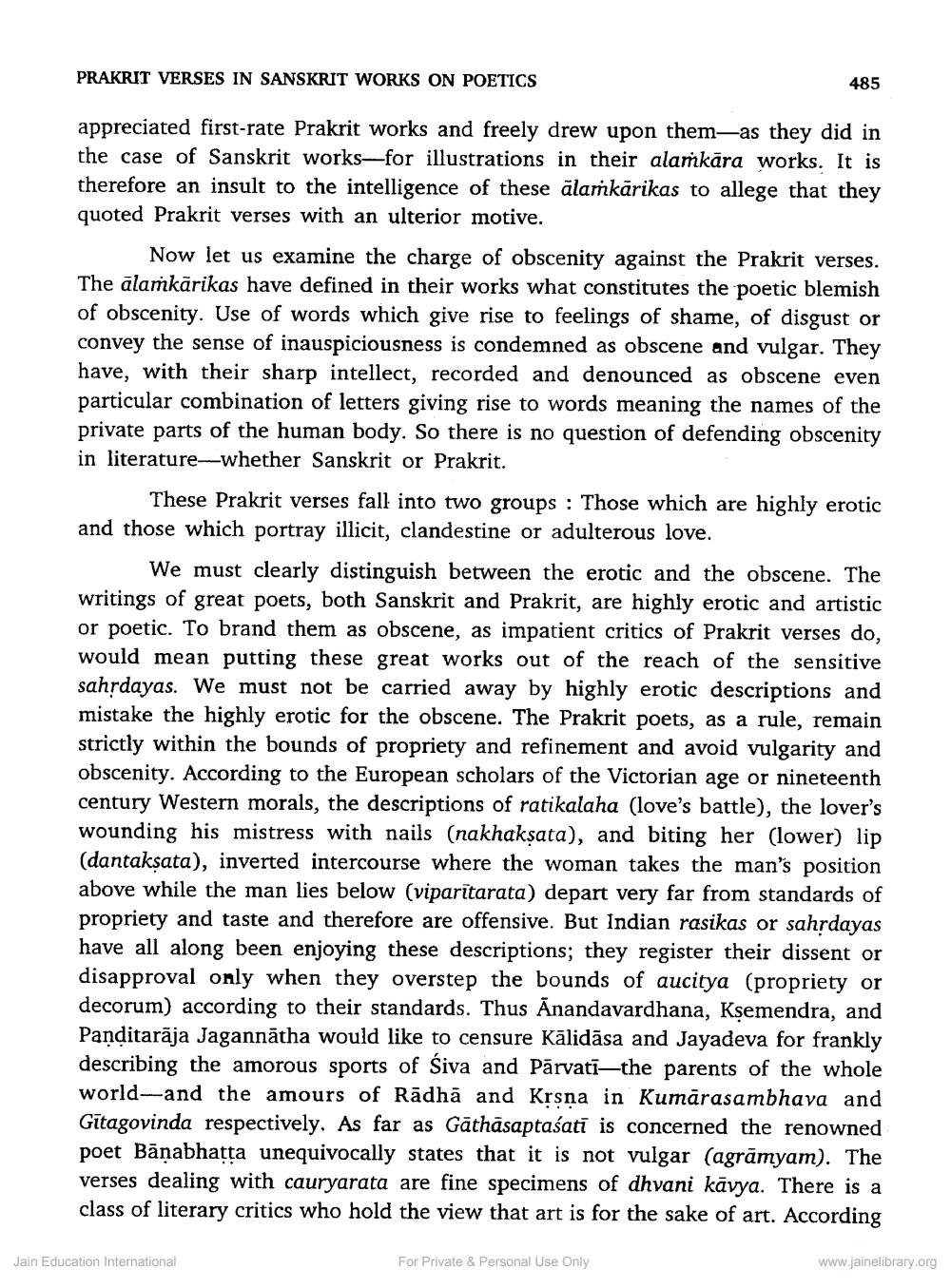________________ PRAKRIT VERSES IN SANSKRIT WORKS ON POETICS 485 appreciated first-rate Prakrit works and freely drew upon them as they did in the case of Sanskrit works for illustrations in their alamkara works. It is therefore an insult to the intelligence of these alamkarikas to allege that they quoted Prakrit verses with an ulterior motive. Now let us examine the charge of obscenity against the Prakrit verses. The alamkarikas have defined in their works what constitutes the poetic blemish of obscenity. Use of words which give rise to feelings of shame, of disgust or convey the sense of inauspiciousness is condemned as obscene and vulgar. They have, with their sharp intellect, recorded and denounced as obscene even particular combination of letters giving rise to words meaning the names of the private parts of the human body. So there is no question of defending obscenity in literature whether Sanskrit or Prakrit. These Prakrit verses fall into two groups : Those which are highly erotic and those which portray illicit, clandestine or adulterous love. We must clearly distinguish between the erotic and the obscene. The writings of great poets, both Sanskrit and Prakrit, are highly erotic and artistic or poetic. To brand them as obscene, as impatient critics of Prakrit verses do, would mean putting these great works out of the reach of the sensitive sahrdayas. We must not be carried away by highly erotic descriptions and mistake the highly erotic for the obscene. The Prakrit poets, as a rule, remain strictly within the bounds of propriety and refinement and avoid vulgarity and obscenity. According to the European scholars of the Victorian age or nineteenth century Western morals, the descriptions of ratikalaha (love's battle), the lover's wounding his mistress with nails (nakhaksata), and biting her (lower) lip (dantaksata), inverted intercourse where the woman takes the man's position above while the man lies below (viparitarata) depart very far from standards of propriety and taste and therefore are offensive. But Indian rasikas or sahrdayas have all along been enjoying these descriptions; they register their dissent or disapproval only when they overstep the bounds of aucitya (propriety or decorum) according to their standards. Thus Anandavardhana, Ksemendra, and Panditaraja Jagannatha would like to censure Kalidasa and Jayadeva for frankly describing the amorous sports of Siva and Parvati--the parents of the whole world-and the amours of Radha and Krsna in Kumarasambhava and Gitagovinda respectively. As far as Gathasaptasati is concerned the renowned poet Banabhasta unequivocally states that it is not vulgar (agramyam). The verses dealing with cauryarata are fine specimens of dhvani kavya. There is a class of literary critics who hold the view that art is for the sake of art. According Jain Education International For Private & Personal Use Only www.jainelibrary.org




